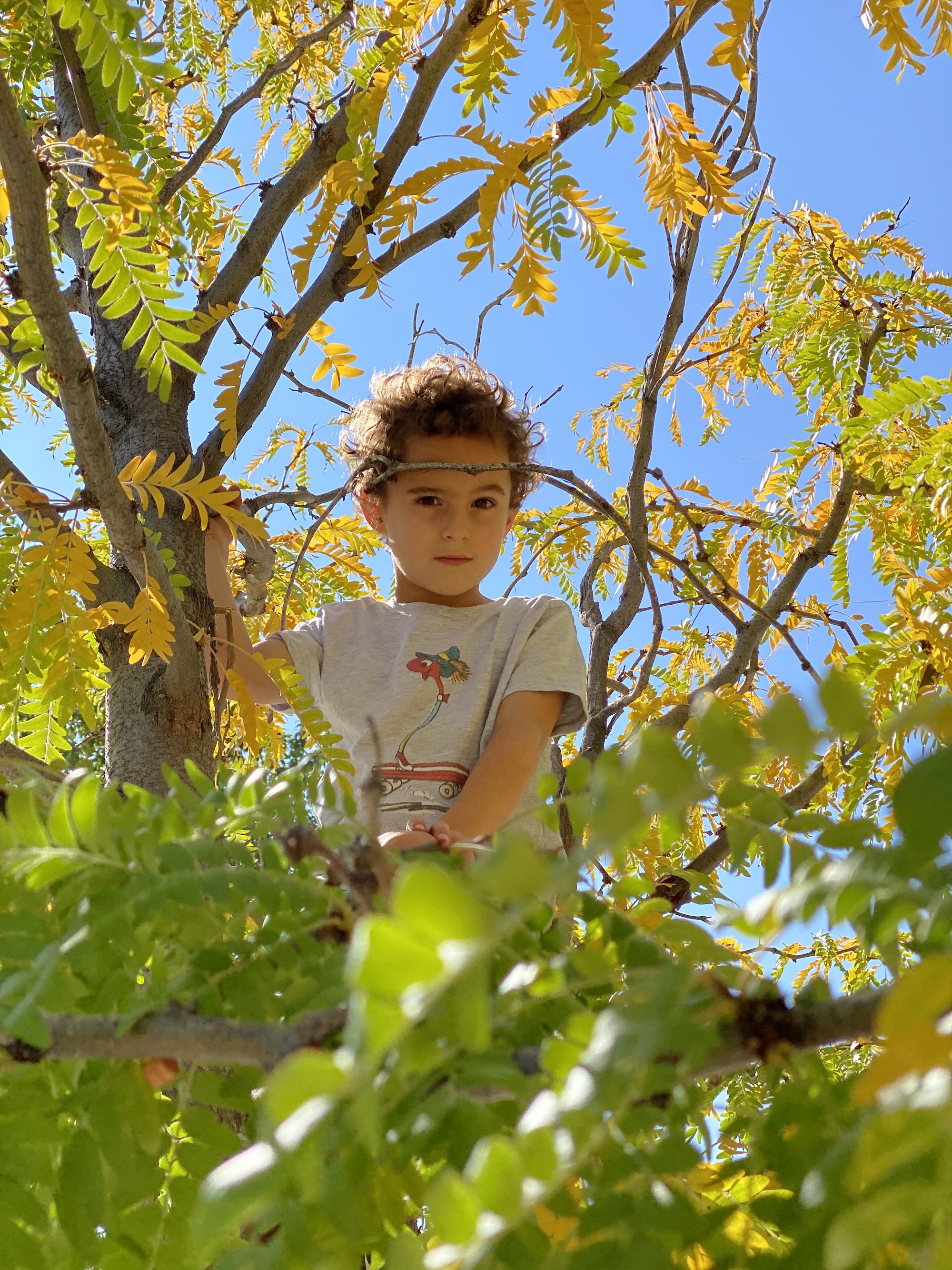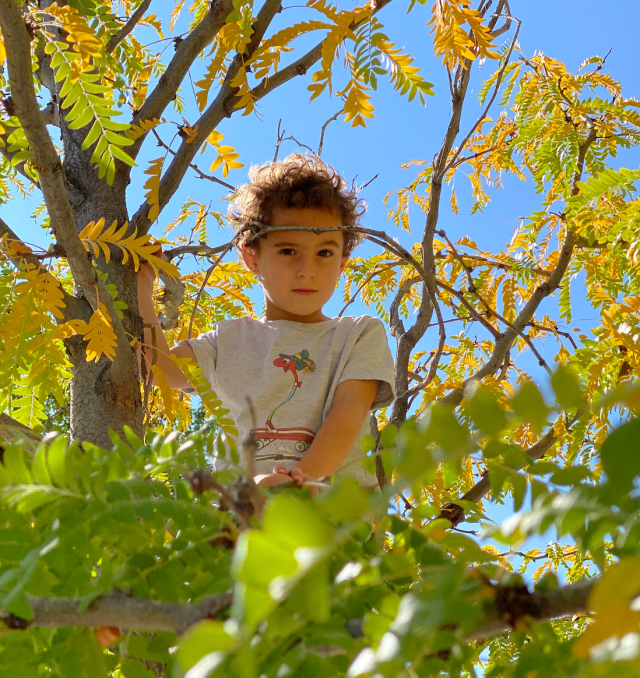
It’s not rocket science. The people we open up to are the people we like. We share most freely with our spouse or our dearest friends or a trusted relative. Maybe we share with the Uber driver, but that’s probably because that Uber driver is a good listener. Or maybe he makes you laugh with a story about a previous passenger that wanted a ride to the grocery store at 2 a.m. to bowl watermelons down the aisles. When you find yourself opening up to tell that driver about your grandpa, who also loved to bowl, you’re not feeling judged. You’re not annoyed. You’re enjoying yourself. You open up because you like chatting with the dude.
Our kids are no different. When talking openly engages them, when it’s interesting and fun, and when they feel safe, they’re inclined to speak freely. When conversation feels like a chore, well then…who likes chores?
Sharing Is Caring.
Sharing about ourselves is an act of giving. Revealing personal information can make us uncomfortable and it’s often much easier not to share. There is vulnerability in opening up; we instinctually hold back if we feel unsafe or if it just doesn’t feel good.
And yet, no matter how fun, non-judgmental, and warm of a parent you are, it’s the order of nature—parents want to know, know, know. And there are times or phases in a child’s life that all they want to do is roll eyes and not share. The age-old saga. You ask and they gape. So how to get them gabbing when your parenty-ness and their kiddiness gets you in a quiet rut?
Give Your Kid the Power.
We all like to feel as if we’re “in the know.” Whether we’re sharing hard-won wisdom gleaned through lived experience, how to disguise kale in kid food, or juicy gossip, having information that others deem valuable makes us feel important. Try making your child feel like what they’ve got in that little head of theirs is valuable. Rather than “What did you do at school today?” try “Teach me something you learned today.” They’ve got stuff they can teach? Suddenly, they’re in charge, and with that comes the feeling that they’re “in the know” and perhaps the feeling that they’ll want to share.
The Spotlight Can Be Blinding.
Questions can make some kids feel like they’re on the spot. Try a simple rewording like “I was thinking about you on the playground today and I wonder who you played with.” It’s a subtle difference from “Who the heck did you play with at recess?” And yet it can change the flow of conversation. In addition, “Kids often open up more in the car, on a walk, or in the dark—all times when eye contact is limited,” says Dr. Laura Markham, Clinical Psychologist and author of three best-selling books on peaceful parenting.
Go First.
Let me tell you what I did today…You’re curious, right? When you tell your child about your day, and not just the dull “I went to work” kind of stuff, but the good, nitty-gritty interesting stuff, you grease the wheel for a good convo. Who doesn’t love a story about a co-worker dribbling mustard on his shirt at lunch? Plus, when you mention how you loaned him the spare shirt from your gym bag, you model kindness and preparedness for the kiddo. It might be an underhanded way of dropping some wisdom nuggets on the youngster, but there’s no lesson like a disguised lesson in the game of parenting.
Games. They’re Fun.
Two Truths and a Lie. The Would-You-Rather game. 20 Questions. Even a simple guessing game with hints. “Seems like you’re bummed out. I’ll bet you a lollipop I can guess why.” Yes, your child may figure out what you’re up to. But bringing fun into a conversation could be all that’s needed to get your child chatty.
Ritualize.
However you shape it, be it Taco Tuesday or Sunday Funday, cement a time when you share. Some families share what they’re grateful for that week. Others do Rose Thorn Bud, discussing their best moment, their worst, and what they’re looking forward to. Add a special element to make the ritual unique (like ice cream sandwiches or a TV show your family loves) and the event will really be a show stopper.
Don’t Give Advice. It’s Annoying.
It’s hard to resist giving suggestions. Especially when kids are complaining. It’s our instinct as parents to want to fix things for our children. But according to Adele Faber, co-author of How to Talk So Kids Will Listen & Listen So Kids Will Talk, when parents try to talk kids out of what they’re feeling that’s the fastest way to get them to clam up. “Instead,” she suggests, “nod to let him know you’re actively listening, or say something neutral like, ‘Oh, that’s what’s bothering you.’ Or ‘Sounds as if that could be pretty upsetting.” This way you’re demonstrating to your child that you get it.
Drive Carpool.
Most likely if you find your child talking less to you, it’s because they’re talking more to their friends. This is completely developmentally appropriate. Still you don’t want teens or pre-teens going dark on you. Often kids start gabbing with their buddies and forget you’re there—giving you some fodder to follow up with them on later. All’s fair in love and parenting after all.
And If All Else Fails, Go Ahead and Butter ‘Em Up.
Do something out of the ordinary with your child that they will like. Take them out to breakfast and let them be late to school. Take them shopping for a new hat or dress or pair of kicks. Go on a bike ride. Build that LEGO hamster wheel your kid has been begging you to help with. Happy kids have loose lips.











